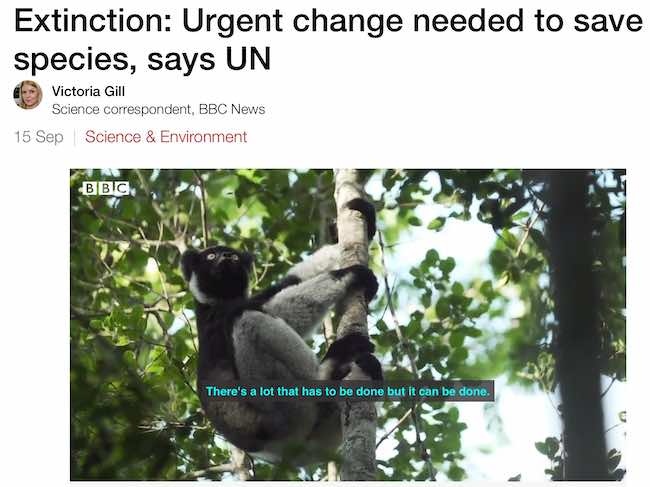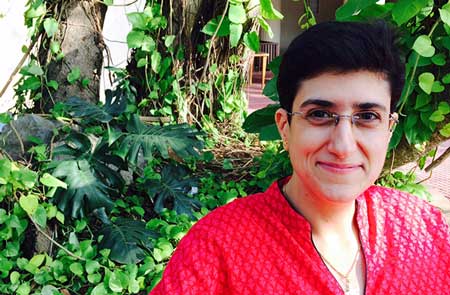Goa villages to document biodiversity
PANAJI: Goa has become the second State after Kerala to constitute Biodiversity Management Committees in most of its village panchayats, according to Pradip V. Sarmokadam, Member Secretary, Goa State Biodiversity Board.
The move is aimed at forming People’s Biodiversity Registers (PBRs) in villages, which as many as 75 villages are already in the process of forming these. […]Traditional knowledge
These committees are expected to function for conservation of biological diversity, sustainable use of its components and fair and equitable sharing of the benefits arising out of the use of biological resources and associated traditional knowledge. They will maintain data about local vaidyas(practitioners of traditional medicinal knowledge), keep a register on information of access of biological resources and traditional knowledge granted, details of collection fee imposed and of benefits derived and the mode of their sharing.
He said the board would sensitise and train the committees in documentation of biodiversity and associated traditional knowledge. “Unless we are able to connect the biodiversity conservation to livelihood of people in the area, we will not be able to convince them about conservation and sustainable sharing of its benefits, for retaining same quality of food, same quality of environment,” he said.
Source: The Hindu, 28 October 2017
Address : https://www.thehindu.com/news/national/other-states/goa-villages-to-document-biodiversity/article19934700.ece
Date Visited: 30 September 2020
Times of India TNN, Nov 23, 2012
Hyderabad’s first biodiversity museum in “cold storage”
HYDERABAD: It could be a long wait before Hyderabad can have its Rs 100-crore national biodiversity museum promised by the Ministry of Environment and Forests in August this year as not a single rupee has been disbursed for the project so far with some wondering whether the project was in the ‘cold storage’.
Ministry officials during the global biodiversity convention (CoP-11) held here last month had announced the project ‘open’ and even agreed to fund its construction. But the promise of starting work at the site within five months seems to have been conveniently forgotten. […]
Source: Hyderabad’s first biodiversity museum in “cold storage” – Times Of India
Address : http://articles.timesofindia.indiatimes.com/2012-11-23/hyderabad/35318787_1_biodiversity-park-museum-plan-bio-diversity-board
Date Visited: Sun Dec 02 2012 11:32:11 GMT+0100 (CET)
[Bold typeface added above for emphasis]
“If we take action, the right action – as the report [on Biological Diversity] proposes – we can transition to a sustainable planet.” […] Many good things are happening around the world and these should be celebrated and encouraged […] We have to act now. It is not too late. Otherwise, our children and grandchildren will curse us because we will leave behind a polluted, degraded and unhealthy planet.” – Elizabeth Maruma Mrema, executive secretary, UN Convention on Biological Diversity – “Extinction: Urgent change needed to save species, says UN”, BBC News, 15 September 2020 >>

Watch the video on BBC News | More about Biodiversity in India >>

Biodiversity fostered by tribal communities >>
Learn more
Atree.org | Ashoka Trust for Research in Ecology & the Environment (posts)
Biodiversity | Biodiversity hotspot | Hyderabad biodiversity pledge
Climate change | Audio | The Climate Question (BBC Podcast)
eBook | Background guide for education
Ecology and environment | Eco tourism | Tourism | Wildlife tourism
Environmental history and what makes for a civilization – Romila Thapar
Equations blog (Equitable Tourism Options)
Forest Rights Act (FRA) | Hunter-gatherers | Illegal mining | Legal rights over forest land
Information provided by Indian government agencies and other organizations (FAQ)
Nature and wildlife | Crocodile | Elephant | Tiger | Mangrove forest | Trees
PARI’s tales from tiger territory | People’s Archive of Rural India (PARI)
Shola Trust | Nilgiri Biosphere
Water and development – India’s tribal communities
Western Ghats – tribal heritage & ecology
What is the Forest Rights Act about?
Who is a forest dweller under this law, and who gets rights?